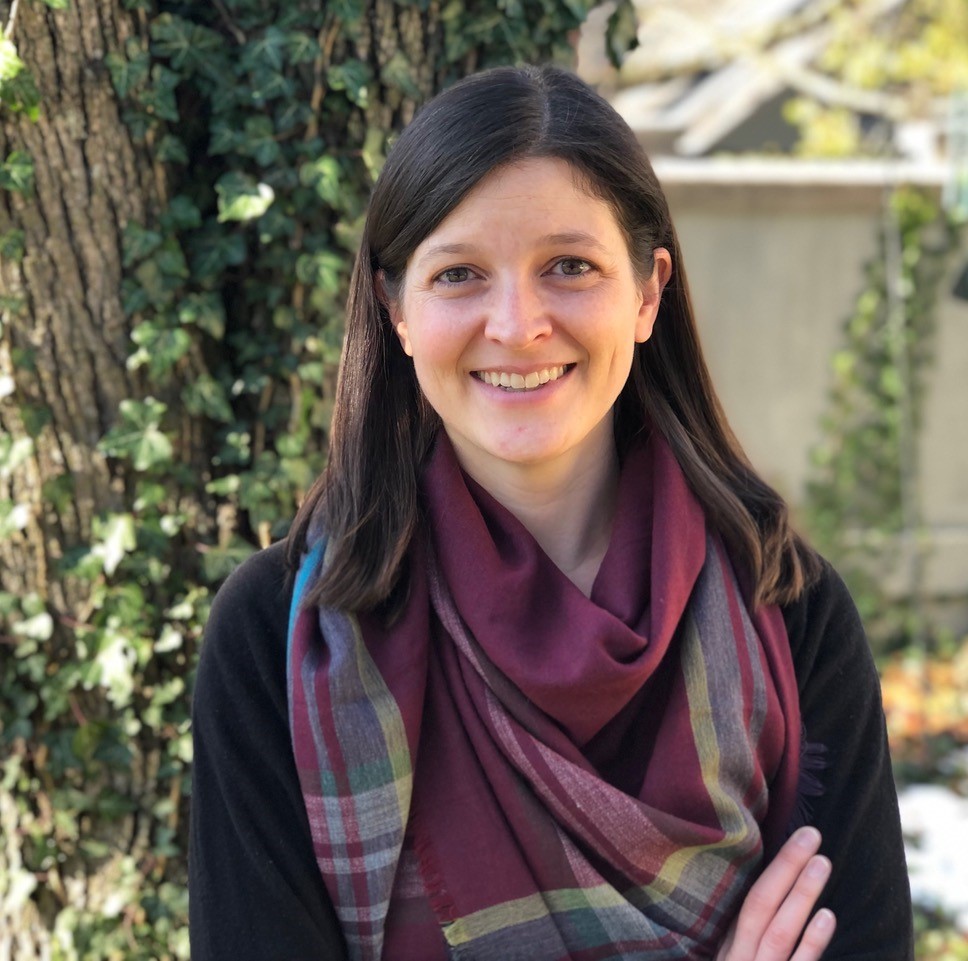
Grant supports UC pilot program that couples science with humanities
UC professor has a philosophy about science: Nonscientists can participate too
The introduction to math and science typically begins in elementary and middle school. That’s also when students begin to think that they have to be a math whiz to study science, says University of Cincinnati assistant professor of philosophy Melissa Jacquart.

Melissa Jacquart wants to teach middle school students another way of looking at science, through a philosopher’s eyes. Photo/provided.
Jacquart, however, wants to change that impression, by offering middle school students an after-school program that introduces them to another way of looking at science, through a philosopher’s eyes.
“My intent is to show the students who think of themselves as nonscientists that they do have a place in science, and that the humanities have a role in science as well,” says Jaquart who has been awarded a $50,000 Whiting Public Engagement Program grant to pilot a Philosophy & Science Fair Club for seventh and eighth graders at a Cincinnati Public School in fall 2023.
Although the program has a science foundation, it will more so focus on the humanistic aspects of science, she says. “It will be bidirectional that way,” says Jaquart whose research focus examines the role philosophy can play in general public understanding of science and in science education. For example, students may consider how scientists’ intellectual context and worldviews impact the scientific method and process of discovery or the role trust plays in the public’s understanding of scientific findings.
Jacquart’s initiative will be carried out through the UC Center for Public Engagement with Science, in partnership with the Greater Cincinnati STEM Collaborative. The groups will work to create lesson plans designed to introduce students to the philosophical and other humanistic aspects of science by identifying a theme, such as space exploration or climate change, and then deploying philosophical methods of inquiry to deeply investigate it. She will teach the pilot program with graduate student assistance.
This is a deeply innovative initiative
Angela Potochnik Professor of philosophy and director of the Center for Public Engagement with Science
“At the Center for Public Engagement with Science, we prioritize an interdisciplinary approach including the humanities, as well as partnership with other community organizations; this is a deeply innovative initiative that embodies both of these priorities,” says Angela Potochnik, UC professor of philosophy and the center’s director.
Over the course of 15 weeks, students will develop individual projects related to the shared theme and informed by philosophical discussion. The course will culminate with each student entering their project in the Southwest Ohio Science and Engineering Expo Science Fair, one of the nation’s largest student science fairs.
The overall intent, says Jacquart, is to expand the program to other Cincinnati public schools and schools across the country.
According to the Whiting Foundation grant committee, they saw Jacquart’s project as one that teaches children cross-disciplinary inquiry skills that are indispensable to civic literacy and described it as representing an important avenue for demonstrating the ways that the humanities are essential.
Per the foundation: “Without the humanities … we can’t fully understand why science matters.”
Featured photo at top of glass beakers/Adobe.
Impact Lives Here
The University of Cincinnati is leading public urban universities into a new era of innovation and impact. Our faculty, staff and students are saving lives, changing outcomes and bending the future in our city's direction. Next Lives Here.
Related Stories
UC alum aims for summer Olympic debut
February 23, 2026
With the 2026 Winter Olympic Games coming to a close, attention now turns to the summer games coming up in Los Angeles in 2028. Beach sprint rowing is a relatively new sport that is surging in popularity due to its inclusion in the 2028 Los Angeles Olympic Games. Spectrum News 1 spoke with Lindner College of Business alum and most-decorated beach sprint rower of all time, Christopher Bak, on his Olympic-sized goals.
Fentanyl overdoses hitting the elderly
February 23, 2026
The University of Cincinnati's Daniel Arendt was featured in a Jacksonville news station News4Jax report on the increase in fentanyl overdose deaths in seniors.
Engineering professor gives students chance to explore physics with dance
February 23, 2026
University of Cincinnati students and high school students can explore physics concepts through dance during a weeklong summer experience at UC. Students from all backgrounds who are accepted into the program will spend a week working with both researchers and dancers at the Physics + Dance Lab, a summer day camp on August 3-7, 2026. Sarah Watzman, UC associate professor of mechanical engineering, is partnering with Black Box Dance Theatre for an educational component of her recent NSF CAREER Grant.
